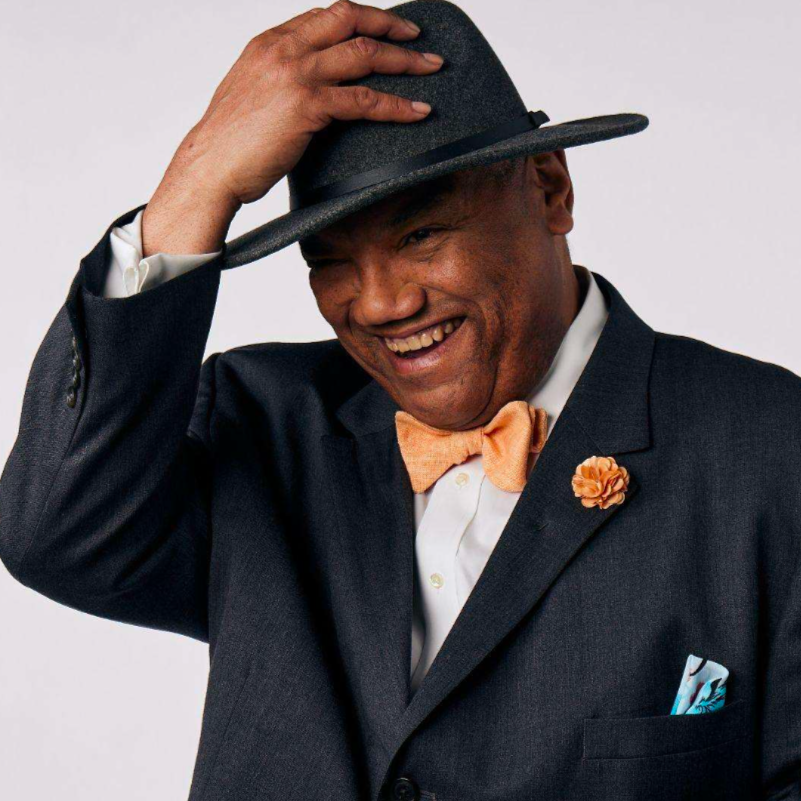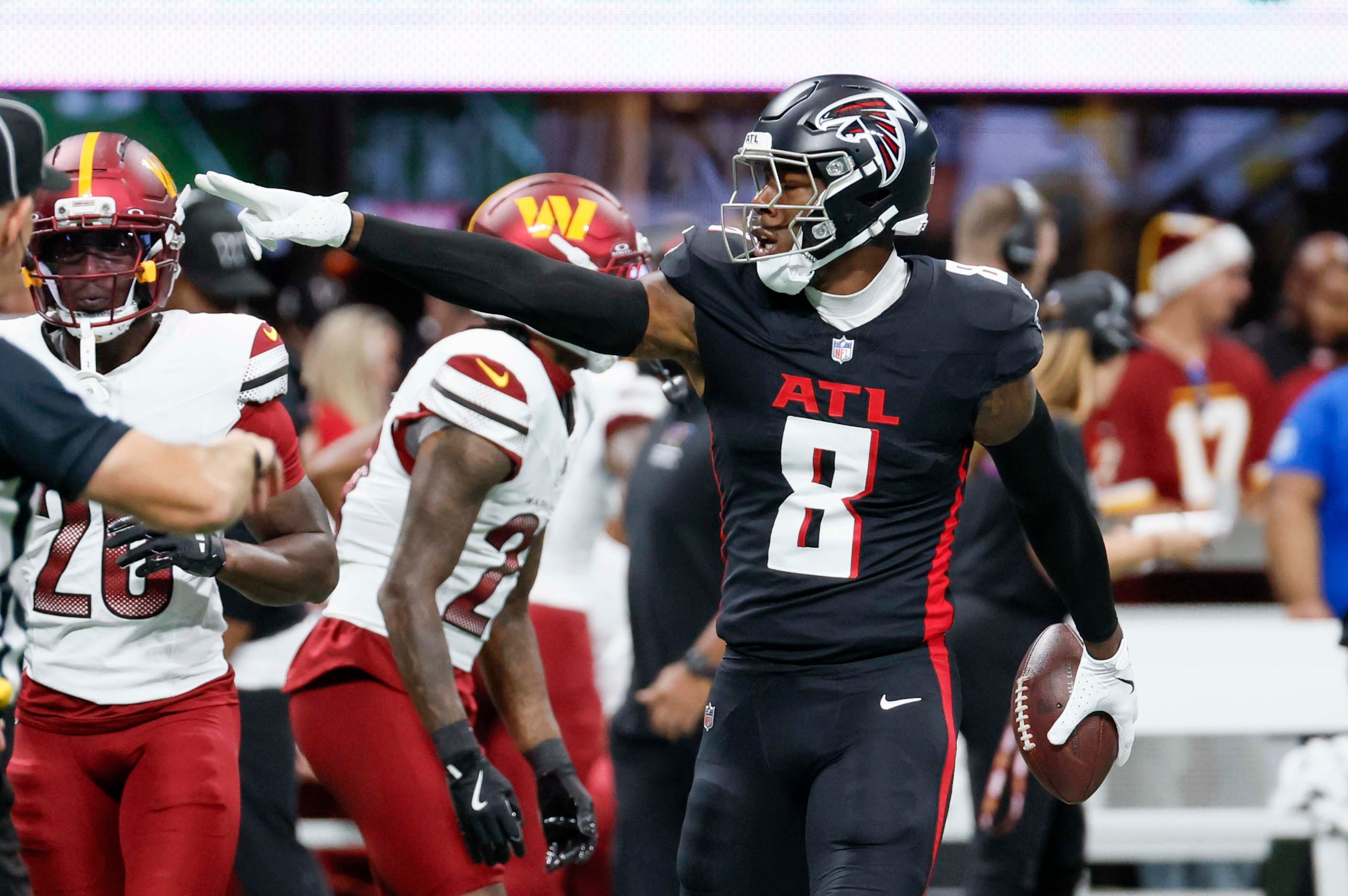Falcons add Riley, discuss how they plan to use McKinley

Falcons coach Dan Quinn has big plans for Takkarist McKinley, the team’s first-round draft pick.
While McKinley, the 26th selection in this year’s NFL draft, played some linebacker at UCLA, he will play mostly defensive end for the Falcons and rush opposite of outside linebacker Vic Beasley, who led the league in sacks last season with 15.5.
“It’s about getting to the quarterback,” McKinley said Friday. “You don’t have to be pretty. It can be ugly. But if you get there, you get there.”
On Friday, the Falcons traded their second-round pick (63rd overall) to the Buffalo Bills to pick up a third-round pick (75th overall) and two fifth-round picks (149th) and (156th). The Falcons’ own fifth-round pick is the 174th overall.
In the third round, the Falcons selected LSU linebacker Duke Riley, who’s 6-foot and 232 pounds. He had 93 tackles last season for the Tigers.
In the Falcons’ third-down nickel package, they could rush Beasley from the left side and McKinley from the right side. Quinn and first-year defensive coordinator Marquand Manuel now have the flexibility to flip them throughout the game.
“He was somebody that we’ve watched for a long time,” Quinn said. “He’s somebody that we had in our sights that we hope will contribute to our team based on the speed, the finishing ability and the toughness. We are really pumped to have him here.”
The Falcons’ pass rush improved dramatically last season, but there is still room for continued growth.
The Falcons registered their 34 sacks over 655 pass attempts in 2016. They had a sack per 4.9 pass attempts, which ranked 27th in the league. The Falcons had 19 sacks over 561 pass attempts in 2015. They had a sack per 3.3 pass attempts, which ranked last (32nd) in the league.
The 34 sacks were the most by a Falcons team since the 37 in 2007.
“This is a feisty group,” McKinley said. “They want to win. I just want to do whatever I can do to help contribute. Whether that’s kickoffs, punt returns, special teams or whatever. Third-down packages or whatever. I just want to do what I can to help them win.”
News flash: The Falcons didn’t draft McKinley to cover kicks. He was added to help rush and sack the passer.
“The first (trait that impressed the team) was his initial get-off where he can really beat a guy to the punch,” Quinn said. “It was that kind of speed. We saw him play linebacker at UCLA where he was in a two-point stance (and) some where he was down and was really going. We saw him play on both sides, and (he has) that kind of flexibility.
“I’m anxious to work with him, and we feel like we can develop and train him and get him even stronger at his skill set. But he does have the initial trait that we are looking for, and past that … he is a finisher.”
The Falcons must be patient with McKinley, who’s coming off a major shoulder surgery that was performed in early March. He played his final two seasons at UCLA with a torn labrum and a fractured socket.
At the combine, McKinley said the recovery time was four to six months.
The Falcons didn’t give their fan base clear answers about McKinley’s recovery timeline or if they can expect him on the field at the outset of the season.
“We are used to hearing about labral tears that affect shoulder stability, but the glenoid fracture sounds ominous,” wrote Dr. David J. Chao in an article for the San Diego Union-Tribune. “Really, the glenoid fracture should not be a big worry in and of itself, as it is likely an extension of the labral tear.
“The shoulder joint is not a true ball-and-socket joint, but rather more a ‘golf ball on a golf tee.’ The glenoid is the ‘tee’ where the ‘ball’ sits, and in McKinley’s case the edge of his ‘tee’ is chipped causing the ‘ball’ to be unstable. This is really the same injury as the labrum tear, as this is where the labrum attaches.”
McKinley is a candidate to start training camp on the non-football injury list, but could be ready to participate during training camp and likely will start his NFL career wearing a right shoulder harness for stability, Chao projects. However, the Falcons felt comfortable about the surgery, but didn’t want to put a firm timetable on his return.
“We didn’t have a problem with that,” Falcons general manager Thomas Dimitroff said. “We knew that he was healing well. He’s in a good situation. Our (doctors) are good with it.
“I understand that anytime you have a situation like that, you need to take care of it.”
McKinley will attend the team’s rookie minicamp and the mandatory camp, but not the OTAs because UCLA is on a quarters system and McKinley will not graduate in time to attend.
Quinn also expressed optimism about McKinley’s return from major shoulder surgery.
“Let’s make the big things small,” Quinn said. “The biggest thing now is the rehab. How quickly you can apply it over the next month? Let’s see where (he is when) we come back for minicamp and then we’ll assess it again at the mandatory camp, and we’ll keep battling from there.”



